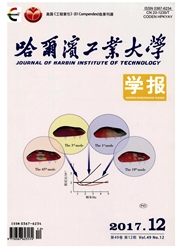

 中文摘要:
中文摘要:
为提高核最小均方误差(Kernel Minimum Squared Error,KMSE)方法的计算效率,利用特征空间中不相关的样本矢量(“基样本”),提出了一种快速KMSE算法,并利用“基样本”与一个样本间的核函数对该样本抽取特征.在入侵检测数据集KDDCUP1999和其他基准数据集上实验表明:该方法不仅高效,并且分类和检测效果良好,“基样本”只占训练样本的很小一部分比例,使用它们可以显著提高特征抽取效率.
 英文摘要:
英文摘要:
To improve the computational efficiency of the kernel minimum squared error (KMSE) algorithm, we propose a fast KMSE by using the uncorrelated sample vectors, known as basic samples, in the feature space. And we describe the theoretical relationship between the linear correlation of sample vectors in the feature space and the determinant of the kernel matrix. The kernel functions between a sample and the basic samples were used to extract the features from the sample. The Whole basic samples is only a small portion of the training set. The experiments on the intrusion detection dataset KDDCUP1999 and other benchmark datasets show that the fast KMSE is computationally efficient and can achieve high classification accuracy.
 同期刊论文项目
同期刊论文项目
 同项目期刊论文
同项目期刊论文
 Combine crossing matching scores with conventional matching scores for bimodal biometrics and face a
Combine crossing matching scores with conventional matching scores for bimodal biometrics and face a Accelerating the kernel-method-based feature extraction procedure from the viewpoint of numerical ap
Accelerating the kernel-method-based feature extraction procedure from the viewpoint of numerical ap 期刊信息
期刊信息
